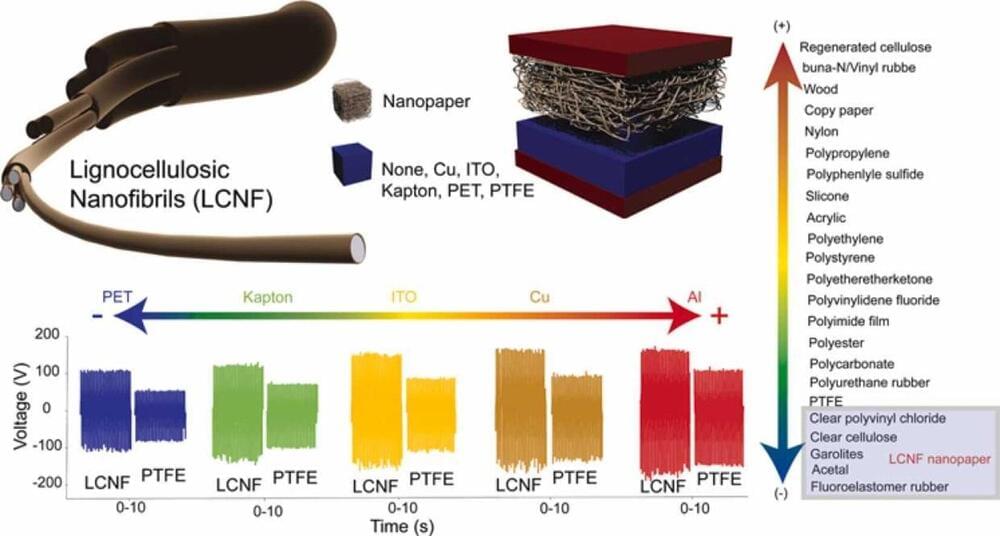Wood-derived materials can be used to harvest electrical energy from everyday movements such as walking, according to University of Toronto and University of Waterloo researchers.
In a new study recently published in Nano Energy, the team demonstrated the use of lignocellulosic nanofibrils—derived from tree bark —in a prototype self-powered device capable of sending a wireless signal to a smartphone via bluetooth.
Such devices can be used to track biometric data such as heart rate, oxygen levels or skin conductivity. The innovation could improve the performance of these devices while lowering their environmental impact.
